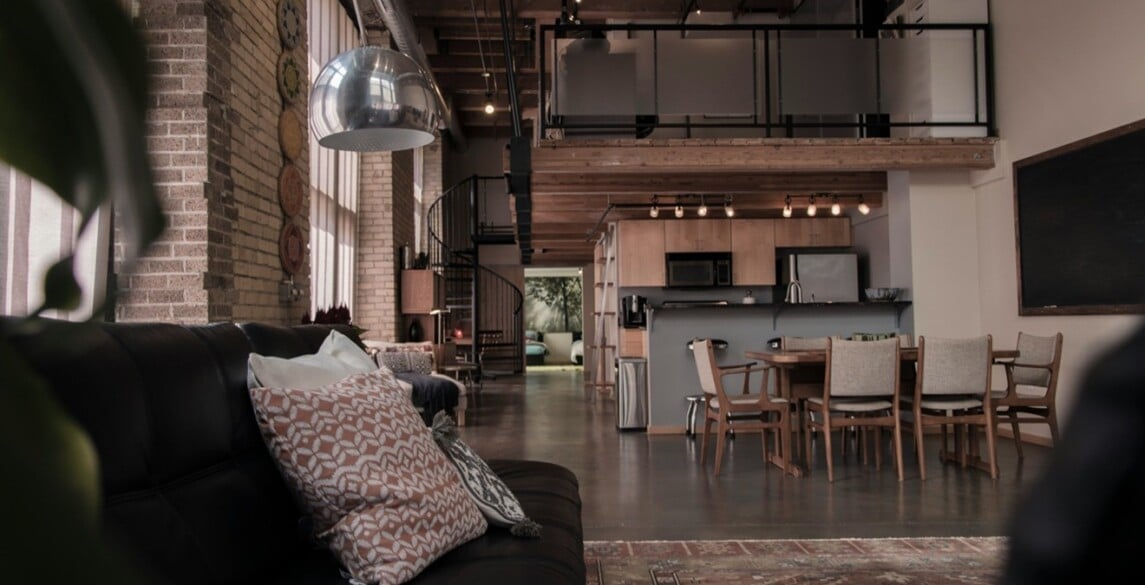The Rise of High-Earning Renters Across the Southeast: Tips for Moving into a New Apartment
From broader trends in housing to lifestyle preferences, apartment living is growing more popular among high earners in cities like Raleigh and Richmond.

High-income individuals are reshaping the rental market in the Southeast, breaking traditional expectations about homeownership. A growing number of affluent residents are deliberately choosing rental living, driven by advantages like flexibility, convenience, and the perks of luxury apartment communities.
According to a report by Axios, Raleigh’s rental market and demand exemplifies this trend. Nearly 8% of renters in Raleigh’s metro area earned over $185,000 annually in 2023—an increase of almost three percentage points since 2019. Other urban areas like Richmond and Orlando are witnessing similar patterns as high-income earners opt for high-end rentals instead of ownership. This shift highlights a changing dynamic in the housing market and raises important questions about lifestyle, affordability, and balance.
Why Are High-Income Renters on the Rise?
Several factors are fueling this movement among affluent renters. These drivers reflect broader trends in housing, lifestyle preferences, and the economic realities of today’s cities.
Rising Home Prices
Unfortunately, homeownership has become increasingly unattainable, or at the very least unattractive, even for high-income earners. Starter home prices have skyrocketed, making the financial commitment to buy a property significantly higher. Many individuals prefer renting luxury apartments because they eliminate large upfront costs, such as down payments, are instead offer more manageable monthly expenses.
The Appeal of Luxury Rentals
Today’s rental communities are far more than just a place to live—they have amenities to complement a high-end lifestyle. Features such as resort-style pools, coworking spaces, fitness centers, and smart-home technology rival or exceed what buyers might find in similarly priced single-family home neighborhoods. This level of convenience appeals to young professionals, empty nesters, and others seeking sophisticated, maintenance-free living.
Job Mobility
Professionals whose careers demand flexibility often favor renting over owning. Cities like Richmond, Raleigh, and Orlando continue to be popular for remote workers or employees who frequently relocate. For these individuals, leasing eliminates the complications of selling a home or staying tied to one location.
Changing Lifestyle Priorities
From empty nesters downsizing to younger generations prioritizing experiences over ownership, many renters prefer a lifestyle that supports flexibility, exploration, and ease. Walkable neighborhoods, popular dining scenes, and proximity to green spaces further enhance the draw for renting in these cities.
While the convenience of renting answers key lifestyle preferences, it also introduces challenges. Raleigh leads the nation in having over 35% of apartments owned by private equity firms, compared to the national average of roughly 10%. This concentration has been linked to rising rent prices and affordability concerns, particularly as demand grows among affluent renters.
Transitioning to an Apartment with Ease
Moving into a new apartment—whether for choice or necessity—requires thoughtful planning.
Treat Renting Like a Home Investment
Renting might not require the same level of financial commitment as buying a home, but smart preparation is still important to stay in budget.
- Budget Beyond Rent: To determine the full monthly expense, factor in utilities, internet services, renters’ insurance, parking fees, pet costs, and community amenity charges.
- Understand Your Lease: Review key details, such as rent escalation policies, renewal options, and termination clauses, to avoid unexpected costs later.
Location Still Matters
The adage “location, location, location” isn’t just for homebuyers—it applies to renters, too.
- Prioritize Convenience: Proximity to work, public transportation, green spaces, and vibrant city centers like Richmond’s Downtown or Raleigh’s Warehouse District can offer tangible lifestyle benefits, often outweighing mere square footage.
- Check Development Plans: Stay informed about upcoming developments in the area. New apartment communities might increase local competition and bring advantages like reduced rent or better amenities—or add challenges like traffic congestion.
Pay Attention to Details
Being detail-oriented during your search can save you headaches later.
- Inspect Common Areas: Beyond your future apartment, examine the building’s lobbies, parking facilities, shared spaces, and mailrooms. These areas can reveal how well the building is maintained.
- Plan Your Move-In Day: Ask whether freight elevators or special parking zones are available for your move. Early coordination makes the process more efficient.
Negotiate for Perks
High-end apartments often offer room for negotiation, especially in new buildings aiming to fill vacancies.
- What to Ask For: Look for waived deposits, free parking, or complimentary access to community amenities such as gyms or pools. Some landlords might even consider offering shorter or more flexible lease terms.
Document the Condition
Protecting your security deposit begins on day one. Before moving in, take thorough, time-stamped photos to record the unit’s condition. This step provides clarity should disputes arise during move-out.
Renting Without Sacrificing Lifestyle
Modern renters are no longer limited by outdated perceptions of apartment living. Instead, many value the unique perks of renting, such as:
- Communities featuring rooftop pools, fitness centers, and event spaces
- Urban accessibility, offering quick access to dining, shopping, and cultural activities
The rise of wealthy renters is more than a passing trend—it’s a redefinition of what people value in their living arrangements. For high-income individuals across the Southeast, renting offers the best combination of freedom, convenience, and access to luxury.
Making a move into a new apartment doesn’t have to be overwhelming. Hilldrup is here to guide you every step of the way. When it’s time to ensure your belongings arrive at your new home safely, trust Hilldrup.


